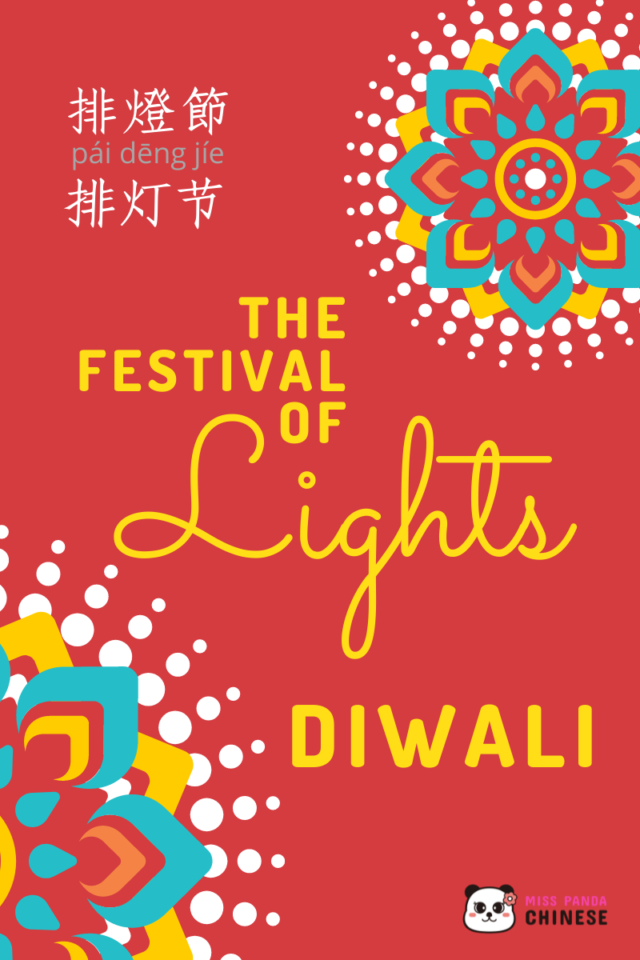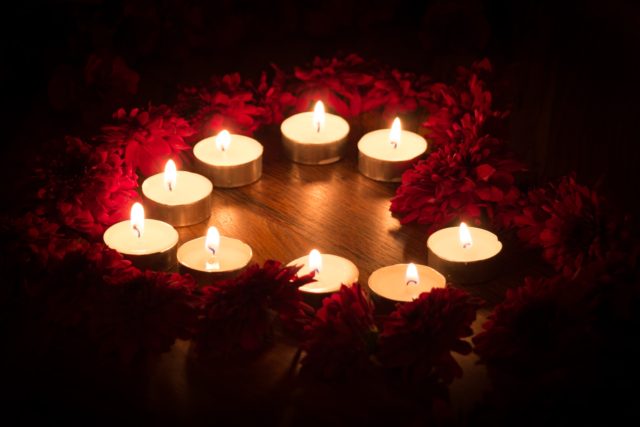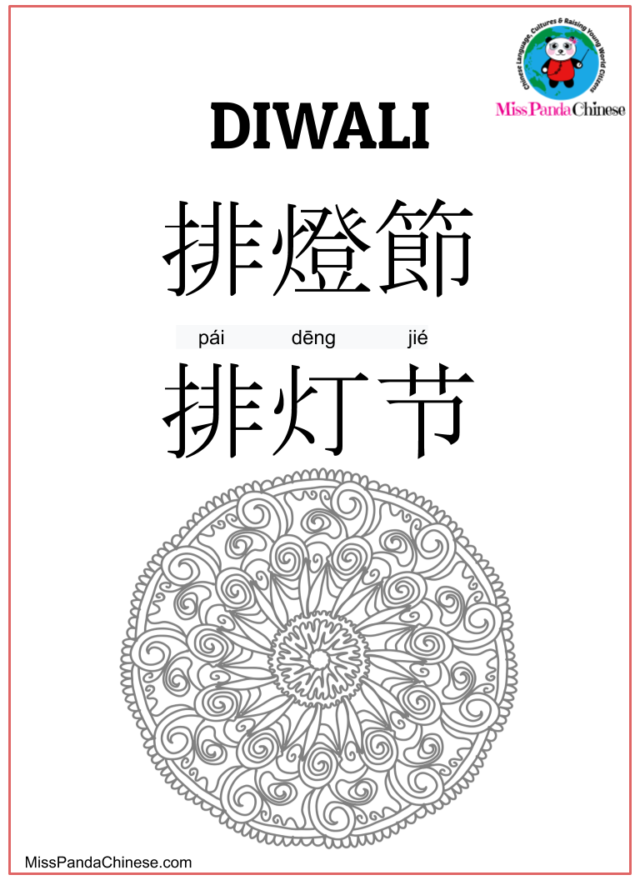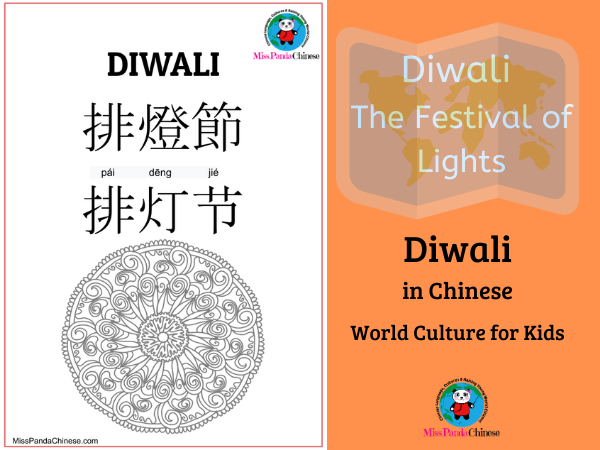Diwali in Chinese The Festival of Lights in India

Diwali is also known as Dipawali. It is the most important and biggest cultural festival of the year to Hindus. This cultural event also extends to the non-Hindu communities, such as Buddhists in India. Diwali is like the Mid Autumn Festival and the Lunar New Year for Chinese. It is also like Thanksgiving and Christmas in the States.
What is Diwali in Chinese? Diwali is pái dēng jié 排燈節 | 排灯节. This phrase literally means “row light festival.” There are clay trays filled with oil lit up everywhere. People display candles, flowers, and beautiful rangoli patterns at home and people see all that outside of the residence as well.
Preparation for Diwali
The preparation for Diwali has regional variation. Some start two months before Diwali and some start two weeks before the arrival of Diwali. India is a diverse country and the regional cultures vary. An Indian friend told me that people set up an outdoor stage in the city where she grew up and a ten-day street theater performance of the story of Diwali about Navaratri was on days before Diwali. She mentioned kids were looking forward to the story in the theater every day.
Multicultural children’s books recommendation: Sparkles of Joy | Five Days of Diwali | Binny’s Diwali
Festival of Lights
Diwali is the Festival of Lights. There are many stories about Diwali and every child in India knows the story of the epic of the Ramayana.
Lights have a symbolic meaning for Diwali. It is lights and the brightness over the darkness, kindness over ignorance, and good over evil. You will see a lot of lights during the celebration. There are oil lamps everywhere. People have flowers, candles, oil clay lamps, and rangoli displays during Diwali.
This is a time for family, relatives, and friends. Children in Indian have a two-week off from school to enjoy this festival. Some region has a two-day celebration and many have a five-day celebration. People clean up their houses, decorate their residences in and out, and have family reunion feasts. There are a lot of gifts, a lot of sweets, and fireworks.
Diwali Tradition Highlights
Let’s explore a little more. You will see people purchase gold, silver, or metal items to have good fortune on the first day of the festival. A friend of mine with Indian heritage told me that she just bought a new pot for the upcoming Diwali. Another friend said she had a silver coin for the festival.
Does this sound like anything you know in one of the Chinese cultural festivals? Diwali celebration practice varies in different regions. As I mentioned earlier some practice the 5-day Diwali celebration. So what’s going on for the next several days?
On the second day, people enjoy fireworks and decorate Rangoli. People will do the drawings of the footprints of Goddess Lakshmi. Goddess Lakshmi is the Goddess of Wealth. The footprints symbolize the Goddess is coming into the house. So, the footprint drawings are pointing to the house, like she is walking into your home.
For the third day, people need to make sure the house is clean and neat to welcome the Goddess of Wealth. You see Goddess of Wealth likes clean living space. Do you see something you are familiar with in the Chinese culture here?
On the fourth day, it is a day to celebrate family and togetherness.
Last but not least, it is Sisters’ Day on the Fifth day. Brothers will give money packets or gifts to their sisters. Does this remind you of anything you know?
Explore Diwali with diverse kids books!
Diwali and World Culture
When sharing the celebration of Diwali people will think about Hinduism. Hinduism is a way of life. It is a daily practice. The celebration of lights is beyond the festival but an everyday celebration of the decisions people make and the kindness inside each person.
What we see in one culture often connects to another. In Chinese culture, many traditions in the Lunar New Year have very similar practices. How about other cultural holidays and festivals you can discuss with your child?
Here are some areas to start exploring with young learners.
-
Holiday preparation
-
Family feast
-
Gifts
-
Fireworks and firecrackers
What upcoming cultural holiday you can use to talk with your child about Diwali?
Photo by Soroush Zargar
Diwali in Chinese The Festival of Lights in India
As an Amazon Associate, Miss Panda Chinese earns from qualifying purchases with no cost to you.





